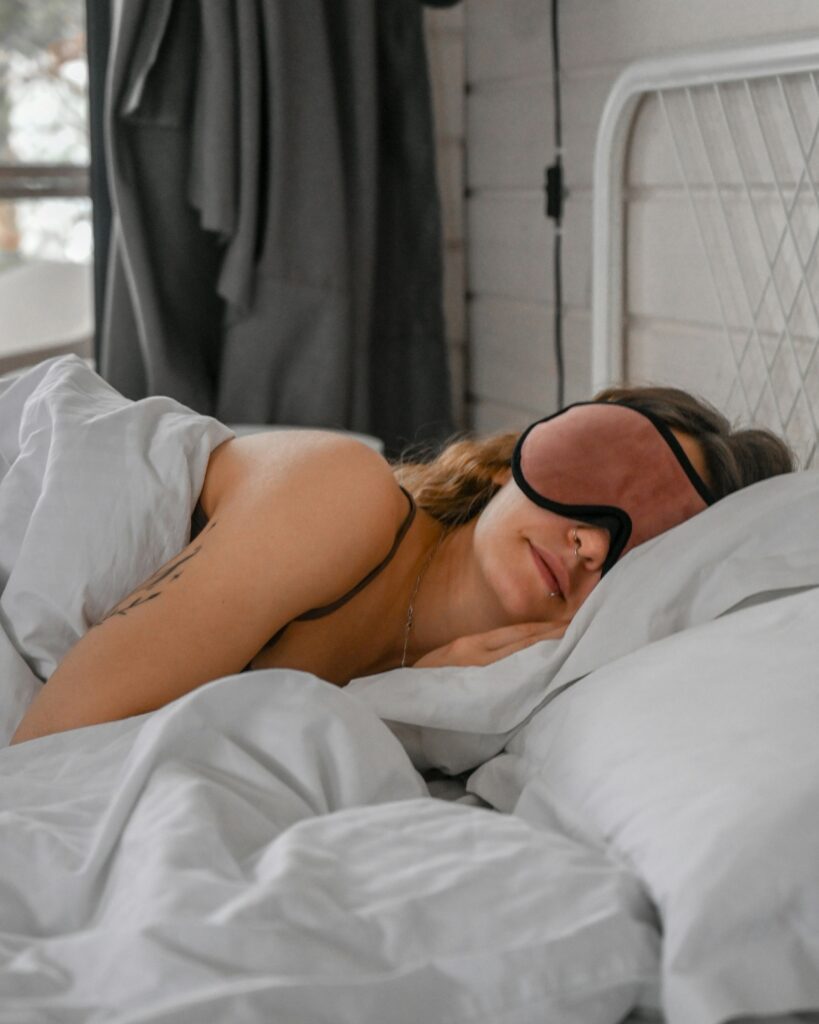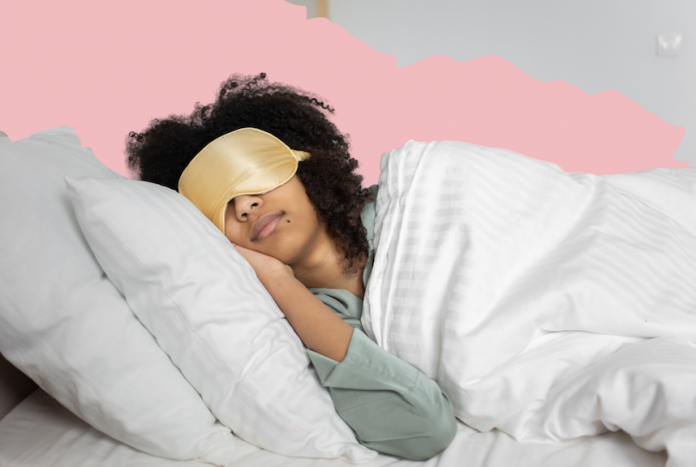As the clocks prepare to go back on Sunday, that extra hour in bed might sound appealing, but for many of us, even this seemingly generous adjustment can wreak havoc on our sleep patterns. The twice-yearly clock change, whilst only shifting time by 60 minutes, can disrupt our finely-tuned internal body clocks in ways that leave us feeling groggy, irritable, and out of sorts for days or even weeks.
Understanding how to navigate these transitions smoothly can make all the difference to your wellbeing. Much like adjusting to new sleep patterns when travelling, the clock change requires thoughtful preparation. Here’s how to keep your sleep on track when the clocks change.
Understanding Your Circadian Rhythm
Your body operates on a 24-hour internal clock called the circadian rhythm, which regulates everything from your sleep-wake cycle to hormone production, body temperature, and even digestion. This sophisticated system is primarily controlled by a ‘master clock’ in your brain that responds to environmental cues, most importantly, light and darkness.
When we suddenly shift our clocks, even by just an hour, we’re asking our bodies to override millions of years of evolutionary programming. The result? Symptoms remarkably similar to jet lag: difficulty falling asleep, trouble waking up, daytime fatigue, reduced concentration, and even digestive issues.
The autumn clock change, when we ‘fall back’ and gain an hour, is generally considered easier to adjust to than the spring change. However, the darker evenings that follow can still disrupt your natural rhythms, particularly if you’re sensitive to light changes or already struggle with seasonal effective patterns.

Start Adjusting Gradually
Rather than expecting your body to adapt overnight, sleep experts recommend a gradual transition. In the week leading up to the clock change, shift your bedtime and wake time by 15 minutes every few days. This incremental approach gives your circadian rhythm time to recalibrate without shocking your system.
For the October clock change, this means going to bed slightly later each night and waking up slightly later each morning. By the time Sunday arrives, your body will already be partially adjusted to the new schedule, making the transition far less jarring.
Consistency is key here. Try to maintain your adjusted schedule even on weekends, as irregular sleep patterns can make adaptation more difficult.
Harness The Power Of Light
Light exposure is perhaps the most powerful tool you have for resetting your internal clock. When the clocks go back and evenings become darker earlier, it’s crucial to get plenty of bright light exposure during the day, particularly in the morning.
Natural sunlight is ideal. Try to spend at least 15-20 minutes outside in the morning, even if it’s cloudy. This helps suppress melatonin production and signals to your brain that it’s time to be alert. If getting outside isn’t practical, sitting near a window or using a light therapy box can provide similar benefits.
Equally important is managing your light exposure in the evening. As darkness falls earlier after the clock change, you might find yourself exposed to artificial lighting for longer periods. Dim your lights in the hours before bed, and consider using warm-toned bulbs rather than harsh white lighting. This helps trigger your body’s natural melatonin production, preparing you for sleep.

Mind Your Evening Screen Time
The blue light emitted by smartphones, tablets, and computers is particularly disruptive to your circadian rhythm. It mimics daylight and can suppress melatonin production, making it significantly harder to fall asleep.
In the weeks around the clock change, when your body is already working to adjust, it’s especially important to minimise screen exposure in the two hours before bed. If you absolutely must use devices, enable night mode settings or wear blue-light-blocking glasses.
Instead of scrolling through social media, consider establishing a screen-free wind-down routine. This might include reading a physical book, gentle stretching, meditation, or listening to calming audio content through a pillow speaker that uses bone conduction technology, allowing you to enjoy audiobooks or sleep sounds without disturbing a partner or wearing uncomfortable earbuds.
Rethink Your Meal Times
Your digestive system has its own internal clock that’s closely linked to your sleep-wake cycle. Research suggests that adjusting your meal times in tandem with your sleep schedule can significantly ease the transition during clock changes.
Start shifting your breakfast, lunch, and dinner times by 15-minute increments alongside your sleep adjustments. This helps synchronise all of your body’s internal clocks, rather than just addressing sleep in isolation.
Avoid eating large meals close to bedtime, as this can interfere with sleep quality regardless of the clock change. If you need an evening snack, opt for something light and easily digestible. Also be mindful of your caffeine intake, that afternoon coffee might need to be consumed earlier than usual during the adjustment period.

Exercise At The Right Time
Physical activity is a powerful regulator of circadian rhythms and can significantly improve sleep quality. However, timing matters enormously when you’re trying to adjust to a new schedule.
Morning or early afternoon exercise can help shift your body clock earlier and increase alertness during the day. The natural increase in body temperature and cortisol that comes with exercise helps reinforce wakefulness at the appropriate times.
Conversely, intense exercise close to bedtime can make falling asleep more difficult, as it raises your core temperature and stimulates your nervous system. If you prefer evening workouts, try to finish at least three hours before you plan to sleep, and consider gentler activities like yoga or walking closer to bedtime.
Create The Ideal Sleep Environment
Your bedroom environment plays a crucial role in sleep quality, and this becomes even more important during periods of adjustment. The ideal sleeping space is cool (around 16-18°C), completely dark, and quiet.
Invest in blackout curtains or a sleep mask to block out light pollution, particularly important as darker mornings might tempt you to sleep later than intended. Keep your room well-ventilated and consider using a fan for both cooling and white noise benefits.
If you share a bed with a partner who has different sleep needs or schedules during the adjustment period, consider personal sleep aids that won’t disturb them, such as individual reading lights, separate bedding for temperature control, or personal audio devices for relaxation content.

Avoid Sleep Aids & Alcohol
When struggling with the clock change, it might be tempting to reach for sleep aids or alcohol to help you drift off. However, both can actually worsen sleep quality and make adjustment more difficult.
Alcohol might make you feel drowsy initially, but it disrupts your sleep architecture, reducing time spent in restorative deep sleep and REM sleep. This leaves you feeling unrefreshed even after a full night in bed.
Over-the-counter sleep medications can create dependency and often leave you feeling groggy the next day. If you’re considering melatonin supplements, consult with your GP first, as timing and dosage are crucial for effectiveness, and they’re not suitable for everyone.
Establish A Consistent Bedtime Routine
A predictable pre-sleep routine signals to your body that it’s time to wind down, making the transition to sleep easier. This becomes particularly valuable during periods when your internal clock is recalibrating.
Your routine might include a warm bath or shower (the subsequent drop in body temperature promotes sleepiness), gentle stretching, reading, journaling, or listening to calming music or guided meditations. The key is consistency, performing the same activities in the same order each night trains your body to recognise these as sleep cues.
Keep your routine to 30-60 minutes and avoid anything too stimulating. This isn’t the time for checking work emails, watching action films, or having difficult conversations.
Don’t Fight Your Chronotype
Some people are naturally morning larks, whilst others are night owls, this is your chronotype, and it’s largely determined by genetics. Trying to force yourself into a sleep schedule that doesn’t align with your natural tendencies makes adaptation to clock changes even more challenging.
If you’re a natural night owl, the autumn clock change might actually suit you better, allowing you to wake later without feeling guilty. Morning people, conversely, might find it easier to maintain their preferred early schedule. Work with your natural preferences rather than against them when planning your adjustment strategy.

Consider The Longer-Term Effects
Whilst the immediate effects of the clock change typically resolve within a few days to a week, the associated shift in daylight patterns can have longer-lasting impacts on sleep and mood. The darker evenings following the October clock change can trigger or worsen seasonal affective symptoms in some people.
Continue prioritising morning light exposure even after you’ve adjusted to the new time. Consider vitamin D supplementation if you’re spending less time outdoors, and maintain your sleep hygiene practices throughout the winter months.
If you find that sleep problems persist beyond two weeks, or if you’re experiencing significant daytime impairment, it’s worth consulting with your GP or a sleep specialist. Chronic sleep issues can have serious impacts on physical and mental health and deserve professional attention.
The Bottom Line
The seasonal clock changes, whilst seemingly minor, can significantly disrupt our sleep patterns and overall wellbeing. However, with thoughtful preparation and the right strategies, you can minimise their impact and maintain healthy sleep throughout the transition.
Start adjusting gradually in the week before the change, leverage the power of light exposure, maintain consistent meal and exercise times, and create an optimal sleep environment. Perhaps most importantly, be patient with yourself, your body needs time to adapt, and that’s perfectly normal.
Remember that quality sleep isn’t just about the hours you spend in bed, it’s about synchronising your body’s internal rhythms with your external environment. By respecting your circadian rhythm and supporting it through these biannual transitions, you’ll not only sleep better but feel better too. For more ways to achieve uninterrupted sleep, explore our comprehensive sleep guides.
Sweet dreams, and may this October’s clock change be your smoothest one yet.





